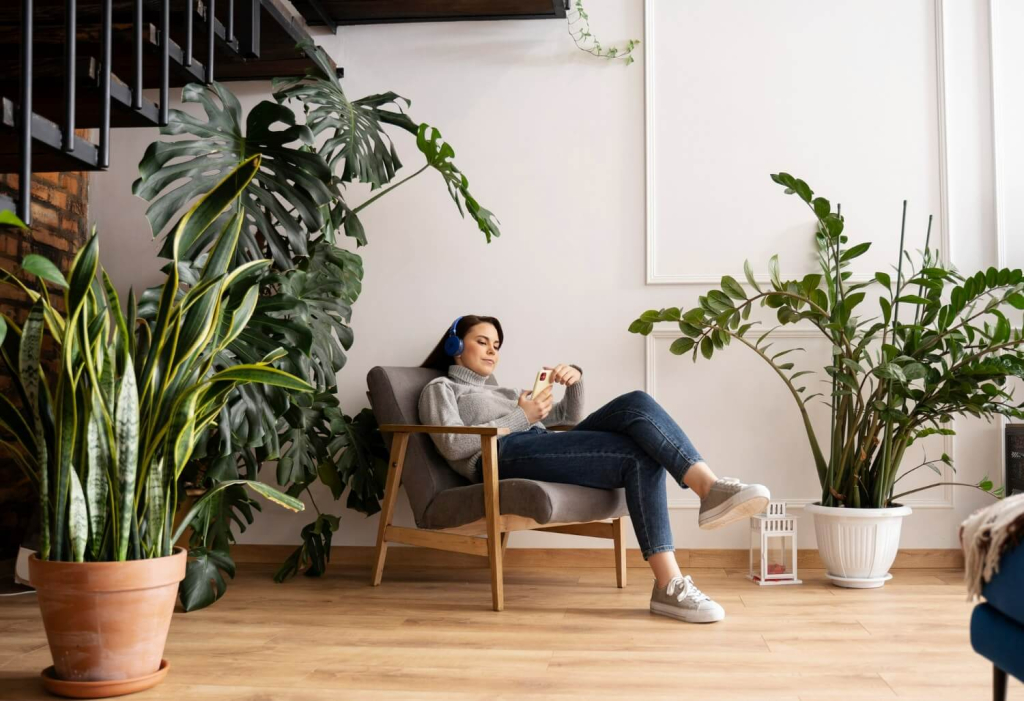
In recent years, more homeowners have embraced the idea of bringing nature indoors, and for good reason.
Scientific research continues to demonstrate that indoor plants are more than just decorative touches for your indoor space. Indoor plants and other houseplants play a vital role in enhancing human health, human emotions, reducing stress, and creating aesthetically pleasing indoor environments that promote overall well-being.
Whether you live in a cozy condo, a family home, or a spacious townhouse, indoor plants offer a wealth of physical and psychological benefits that make life at home healthier and happier.
The Benefits of Indoor Plants
There’s a growing body of evidence suggesting that the presence of indoor foliage plants can have a direct positive effect on both physical and psychological health.
From improving indoor air quality to enhancing mood and focus, the benefits of indoor plants extend far beyond their green beauty.
1. Improving Indoor Air Quality and Health
One of the most well-documented health benefits of indoor plants is their ability to purify indoor air. Through photosynthesis, plants absorb carbon dioxide and release oxygen, helping maintain healthier air quality inside homes.
Analysis from multiple studies from institutions such as NASA and the National Chin Yi University have shown that certain houseplants can remove common pollutants like formaldehyde, benzene, and trichloroethylene. These chemicals are often found in cleaning products and furniture finishes.
Indoor foliage plants like peace lilies, snake plants, and pothos have been proven to help improve indoor air by reducing toxins and increasing humidity. This not only enhances air quality but also supports respiratory health, especially for people who spend most of their time indoors.
Improved air humidity can also ease dry skin, reduce irritation, and promote general health.
2. Promoting Psychological Benefits and Stress Reduction
The positive effects of indoor plants can’t be understated, especially not their psychological benefits.
Multiple studies highlight that simply being in the presence of greenery can reduce stress, lower diastolic blood pressure, and stabilize heart rate.
A study at NYU Langone Medical Center found that patients surrounded by plants experienced faster recovery times and reported less pain. Their study indicates that being around greenery and houseplants may lead to increased pain tolerance and better mental resilience.
Similarly, researchers in plant science and psychology have discovered that people in green spaces or biophilic spaces (areas designed to incorporate nature) show lessening depressive thought patterns, improving mood and focus.
This demonstrates that plants not only have physical health benefits but also promote emotional well-being and human responses that are calmer and more positive.
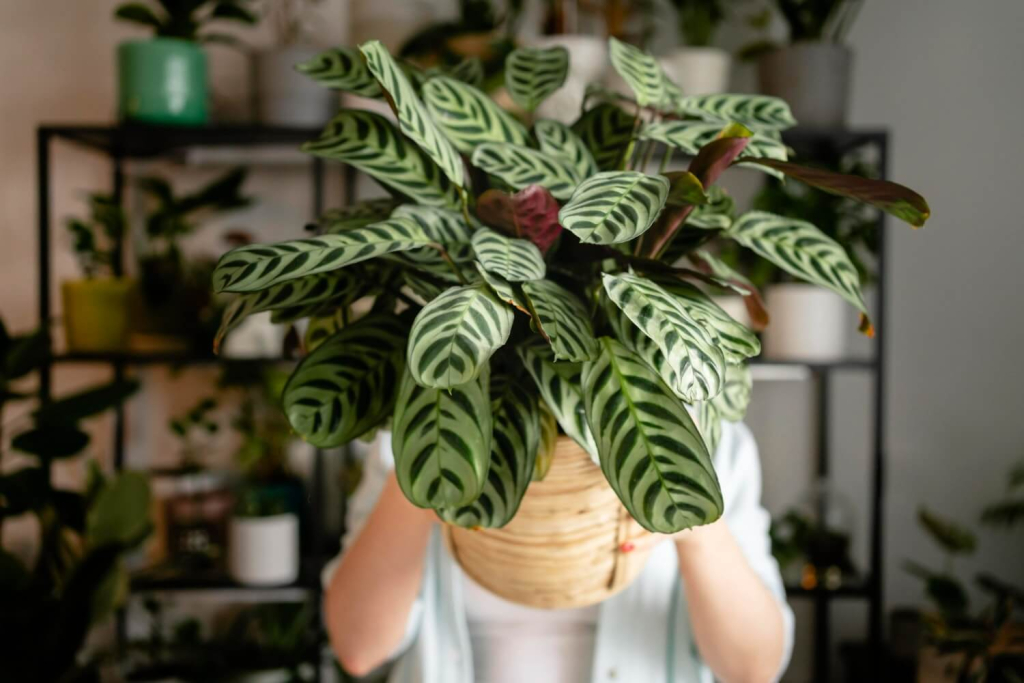
Even small doses of nature, such as having a few houseplants by the window, can lead to significant psychological benefits. Office workers surrounded by plants report fewer sick leave days and higher task performance.
Students, including college students dealing with academic stress, experience increased focus and better attention restoration under experimental conditions that include natural elements like plants.
3. Making Indoor Spaces More Aesthetically Pleasing
Beyond scientific studies, it’s easy to see the aesthetic and emotional influence of greenery.
Indoor plants create aesthetically pleasing and harmonious environments that encourage relaxation and comfort.
This aesthetic connection between humans and nature (known as biophilia) helps make indoor spaces feel more alive, inspiring creativity and happiness.
Indoor plants offer great potential for improving human health in both private and public settings.
In hospitals, schools, and workplaces, the presence of greenery has been linked to improved public health outcomes, reduced absenteeism, and better emotional balance.
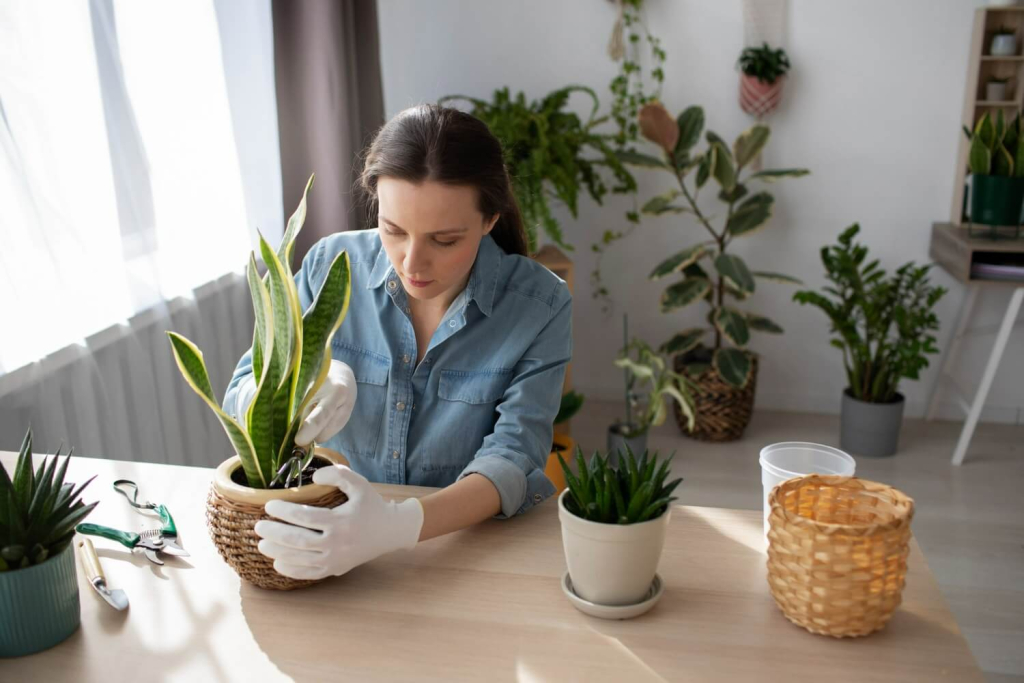
For homeowners, indoor plants transform living spaces into healthier, more serene environments where families can thrive.
4. Supporting Attention and Focus
The benefits of indoor plants also extend to cognitive function. Multiple studies show that exposure to nature can improve concentration and mental performance.
Experimental design studies have found that people working in rooms with indoor plants perform better on tasks that require focus and creativity.
Attention restoration theory suggests that natural elements like plants help replenish mental energy depleted by modern life’s constant stimulation.
Whether you’re a remote worker needing focus or a student studying at home, adding plants to your workspace can significantly improve mood, motivation, and performance.
5. Physical Health Benefits and Recovery
It’s worth noting that plants contribute not just to mental well-being but also to physical health benefits.
Indoor plants influence human physiology in subtle yet powerful ways: lowering heart rate, reducing stress hormones, and improving general health.
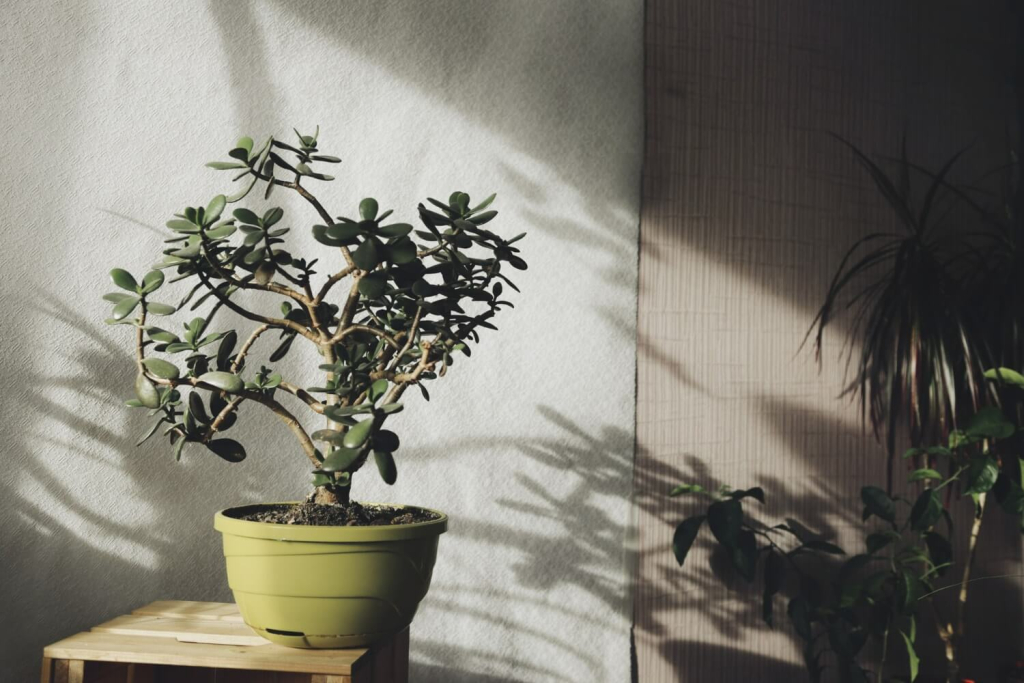
Images Source: https://www.freepik.com/premium-photo/jade-plant-pot_18225587.htm#from_element=cross_selling__photo
In the studies conducted by the NYU Langone Medical Center in hospitals and clinics, patients exposed to indoor plants or garden views often show faster healing, reduced pain perception, and decreased blood pressure.
A senior horticultural therapist once explained that once plants are present, they provide a calming routine. Watering, pruning, and nurturing plants becomes a form of mindfulness that helps humans slow down, connect with life, and experience stress reduction naturally.
In essence, indoor plants improve both body and mind, bringing a sense of vitality and calmness to any space.
What Indoor Plants to Start With
Not all plants thrive equally indoors due to varying light, humidity, and temperature conditions.
Fortunately, many resilient and low-maintenance indoor plant options can grow beautifully in the Philippine climate.
Here are a few beginner-friendly choices:
- Peace Lily (Spathiphyllum): Known for its elegant white blooms, this plant thrives in indirect light and is excellent for purifying air.
- Snake Plant (Sansevieria): Extremely durable and great for beginners. It tolerates low light and improves indoor air quality.
- Pothos (Epipremnum aureum): A fast-growing vine that adapts to a range of light conditions and removes indoor toxins.
- ZZ Plant (Zamioculcas zamiifolia): Almost indestructible, the ZZ plant adds a glossy touch to modern homes and requires minimal watering.
- Philodendron: Available in many varieties, it’s perfect for adding lush greenery to indoor spaces.
These houseplants not only look great but also contribute to better air and human health effects, helping you reap the full benefits of indoor plants in daily life.
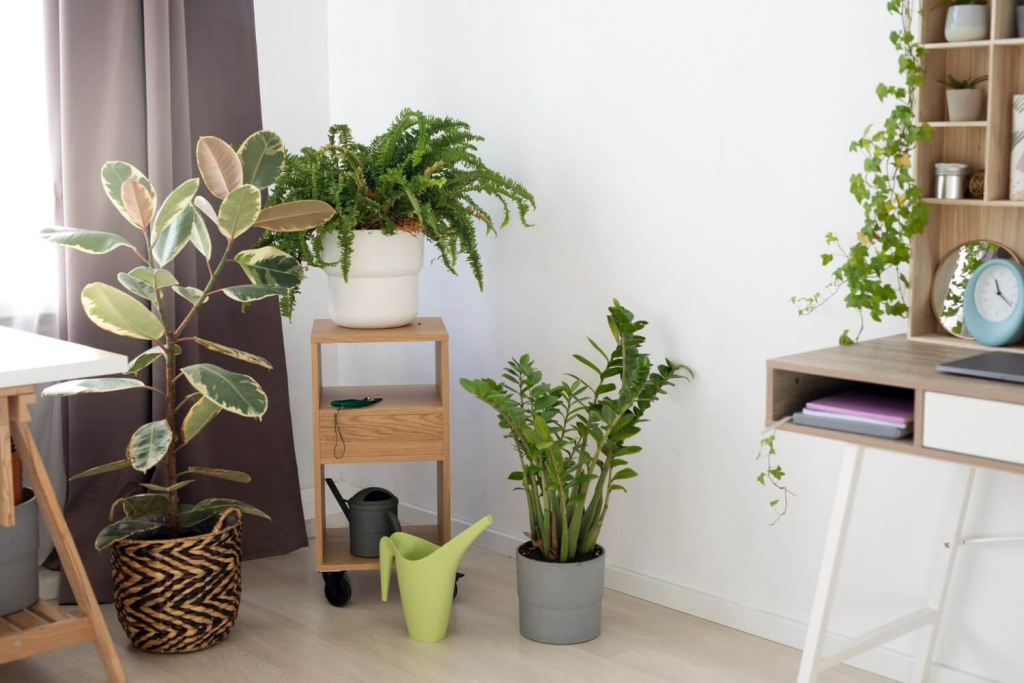
Tips for Caring for Indoor Plants
To maximize the health benefits of indoor plants, proper care is essential.
Here are a few tips:
Light: Place your indoor plants where they can receive adequate natural light, but avoid harsh direct sunlight.
Water: Overwatering is a common mistake. Water only when the topsoil feels dry.
Humidity: Most tropical foliage plants enjoy humid environments, so occasional misting can help.
Cleaning: Wipe leaves regularly to ensure they can effectively absorb light and filter air.
Rotation: Rotate plants every few weeks so all sides get light exposure for balanced growth.
By following these steps, your plants will thrive, and so will your well-being.
A Greener Life with Camella
At Camella, greenery is a vital part of the community’s design philosophy.
Through thoughtful landscape architecture, tree-lined streets, and open green spaces, Camella ensures that every family enjoys the psychological and physical health benefits of being close to nature. Our homes and neighborhoods are crafted to foster human well-being, blending modern living with lush surroundings.
So as you fill your home with indoor plants, Camella is right alongside you, supporting you to live a life that’s healthy, balanced, and beautifully connected with nature.

Celebrate Life’s Milestones in Camella!
Make unforgettable memories in a Camella home.
Our communities are designed to elevate your living experience.

